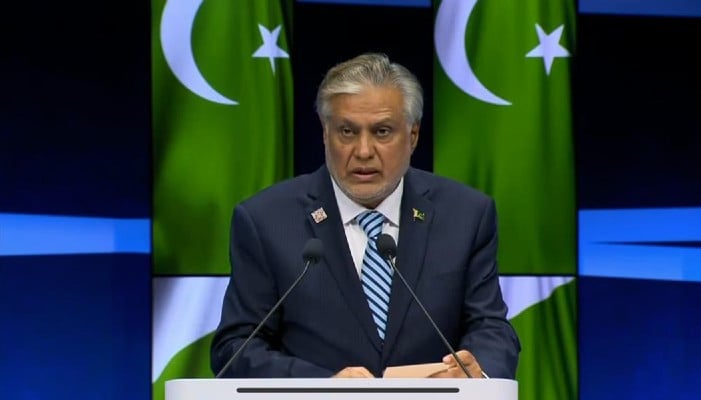ISLAMABAD:
Deputy Prime Minister and Foreign Minister Ishaq Dar will travel to Bangladesh in the third week of April, a ground-breaking development that shows warming of ties between the two countries after the ouster of the pro-Indian government in Dhaka in August last year.
This is going to be the first visit by any Pakistani foreign minister since 2012 and comes amid growing ties between the two countries after nearly two decades of strained relationship. Ahead of the visit, a Pakistani delegation, compromising senior Foreign Office officials, visited Dhaka to prepare agenda.
Hina Rabbani Khar was the last foreign minister, who travelled to Dhaka to extend an invitation to Prime Minister Sheikh Hasina Wajid for the D-8 summit. Relationship between Pakistan and Bangladesh remained strained during the 15-year term of Sheikh Hasina.
The Awami League leader never reciprocated several attempts by Pakistan to mend ties as she was aligned with India. However, after her ouster following a bloody uprising against her role, relationship between Pakistan and Bangladesh has seen a considerable improvement.
There have been a number of exchanges between the two countries at the highest level. Bangladesh has also lifted restrictions on Pakistani exports, allowing increase in the bilateral trade. Moreover, the two countries started direct trade through the sea.
Sources said that Dar’s visit is scheduled from April 22 to April 24. During the visit, Dar would meet Bangladesh Interim Chief Executive Dr Muhammad Younis and hold formal talks with Bangladesh’s Foreign Adviser Towheed Hossain as well as other cabinet members and officials.
Several memoranda of understanding (MoUs) and agreements are expected to be signed during the visit with focus on enhancing trade, commercial ties as well as people-to-people contact, according to the sources.
In February, bilateral trade between the two countries registered an increase with the start of first ever direct trade link via sea. The two countries have already agreed to start direct flights, giving further impetus to the relationship.
Pakistan and Bangladesh have not only intensified political engagements but also defence ties. In January, a top Bangladeshi general came to Pakistan on rare visit. Lt-Gen S M Kamr-ul-Hassan, Principal Staff Officer (PSO) of the Armed Forces Division of Bangladesh, who is the second in command, was the first top Bangladeshi general to have travelled to Islamabad in many years.
The visit of the Bangladeshi general, who was accompanied by senior army officers, highlights the shift in bilateral ties between the two countries since the ouster of Sheikh Hasina government.
As Pakistan and Bangladesh ties grow gradually, India is increasingly worried. Indian officials and experts are concerned that growing Pakistan-Bangladesh ties would undermine security of its restive north-eastern states.
Both Pakistan and Bangladesh have dismissed those fears and made it clear that they are pursuing bilateral ties for their own mutual benefits.
The ouster of pro-India Sheikh Hasina was a massive blow for India, which backed the Awami League Leader to advance its strategic interests. Hasina fled to India and since then has been living there on exile.
The Bangladesh interim government has repeatedly asked for her extradition to face trial for various crimes allegedly she committed while in power. India has yet to respond to the Bangladesh request.

